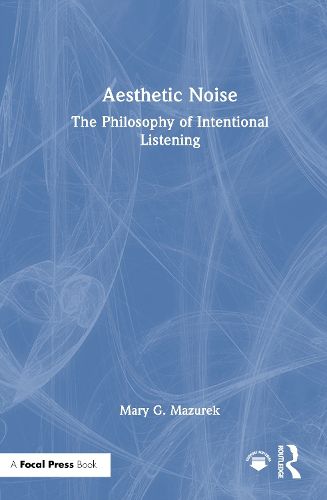Readings Newsletter
Become a Readings Member to make your shopping experience even easier.
Sign in or sign up for free!
You’re not far away from qualifying for FREE standard shipping within Australia
You’ve qualified for FREE standard shipping within Australia
The cart is loading…






Aesthetic Noise: The Philosophy of Intentional Listening considers the complex nature of noise within the framework of philosophical filtering, examining how, if noise is engaged with aesthetically, it can produce profound experiences and understandings.
Applying the philosophies of Edmund Burke, Martin Heidegger, Jacque Derrida, and Julia Kristeva to works by Luigi Russolo, John Cage, Steve Reich, Alison Knowles, Annea Lockwood, Alyce Santoro, and Sunn O))), this book explores noise as an art material, and ultimately how it can become a tool for activism and expanded creative possibilities. It demonstrates that, by engaging multiple philosophies in concert, the value of aesthetic noise is amplified, thus allowing the listener to better appreciate noise and its possibilities.
Providing greater insights into noise as an aesthetic material, Aesthetic Noise will be of interest to researchers and students of sound studies, philosophy, and sound art, as well as sound designers, artists, musicians, and composers.
$9.00 standard shipping within Australia
FREE standard shipping within Australia for orders over $100.00
Express & International shipping calculated at checkout
Aesthetic Noise: The Philosophy of Intentional Listening considers the complex nature of noise within the framework of philosophical filtering, examining how, if noise is engaged with aesthetically, it can produce profound experiences and understandings.
Applying the philosophies of Edmund Burke, Martin Heidegger, Jacque Derrida, and Julia Kristeva to works by Luigi Russolo, John Cage, Steve Reich, Alison Knowles, Annea Lockwood, Alyce Santoro, and Sunn O))), this book explores noise as an art material, and ultimately how it can become a tool for activism and expanded creative possibilities. It demonstrates that, by engaging multiple philosophies in concert, the value of aesthetic noise is amplified, thus allowing the listener to better appreciate noise and its possibilities.
Providing greater insights into noise as an aesthetic material, Aesthetic Noise will be of interest to researchers and students of sound studies, philosophy, and sound art, as well as sound designers, artists, musicians, and composers.